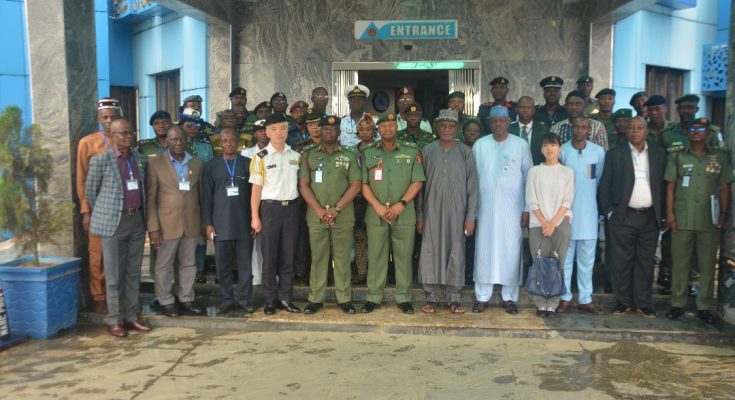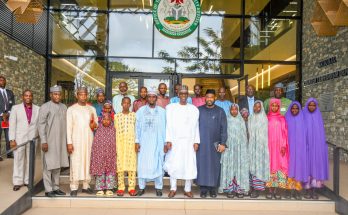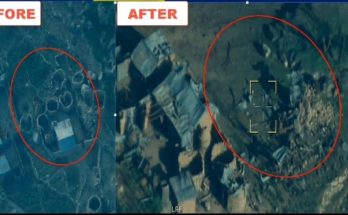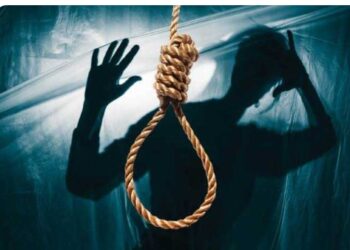The Martin Luther Agwai International Leadership and Peacekeeping Centre (MLAIPKC), the United Nations Development Programme (UNDP) and the Government of Japan have restated their commitment to the protection of civilians in conflict areas.
Speaking at the inauguration ceremony of the comprehensive protection of civilians course 36/2024 sponsored by the government of Japan and UNDP, the Chief of Training Army, represented by Maj.-Gen. Olusegun Abai, said the course would equip participants with skills required for the protection of civilians, minors, persons living with disabilities and the vulnerable within the multi-dimensional conflict environment.
This he said, would help win the hearts and minds of civilians in conflicts areas.
According to him, “it will afford the participants a better understanding of cross-cutting issues that are related to the conduct of Comprehensive Protection of Civilians Course tasks in an integrated PSO or related environment.
“It will enhance the participants’ knowledge of Comprehensive Protection of Civilians and related issues needed to win the hearts and minds of local communities in a conflict or post-conflict environment among others.”
In his remarks, UNDP Team Lead, Governance, Peace & Security, Mr. Matthew Alao, said the course is a testament to collective commitment to the realization of the UN Resolution 1265 on protection of civilians in armed conflicts.
Represented by Mr. Richard Oluwatosin, he said the course will arm participants with the tools and strategies necessary to navigate the complexities of protecting civilians in armed conflict.
“It is a known fact that in conflict zones around the world, civilians often bear the brunt of hostilities and uncertainties. It is our duty, as peacekeepers, security personnel, and humanitarian workers, to ensure their safety, uphold their rights and safeguard their dignities.
“The knowledge and skills that the participants will acquire within the next two weeks will play a prime role in advancing the participants career, preventing escalation of violence, ensuring the safety of civilians, promoting sustainable peace in our communities and contributing to fulfilling the SDGs principle of Leave No One Behind.
“The participants will have the opportunity to acquire knowledge in such areas as overview of protection of civilians, international humanitarian law, human rights, prevention and response to conflict related sexual violence and the practical aspects of civilian’s protection in peace support operations (PSOs).
Speaking further, he noted that the protection of civilians is not just a professional call to duty but a moral imperative.
“By enhancing our capabilities to protect civilians in armed conflict, we are contributing to a more just and peaceful world,” he said.
Also speaking, the commandant of MLAIPKC, Maj.- Gen. Ademola Taiwo Adedoja, said the inauguration of the course represent an essential step forward in collective efforts on the need to forestall the experience of genocide and to ensure the pro-activeness of peacekeepers in the aspect of Protection of civilians in conflicts zones.
He said it demonstrates the commitment of international partners to support MLAILPKC in delivering quality and realistic training to potential peacekeepers.
“By equipping you, participants with the knowledge necessary to protect civilians in conflict situations, the MLAILPKC in conjunction with other Collaborations (UNDP/Government of Japan) are showcasing the profound truth that the protection and promotion of human rights is a collective endeavour that transcends government and institutional responsibilities.
“This course is aligned with the United Nations training standards and qualifies participants to be deployed in integrated peacekeeping operations such as UN, AU and ECOWAS peacekeeping missions,” he said.
Blueprint reports that the participants were drawn from members of the Armed Forces of Nigeria (AFN), para-military, Non-governmental organisation (NGOs), civilians from Ministries, Departments and Agencies (MDAs) and members of the Armed Forces of Ghana, Liberia, Cameroon and Guinea Bissau.




